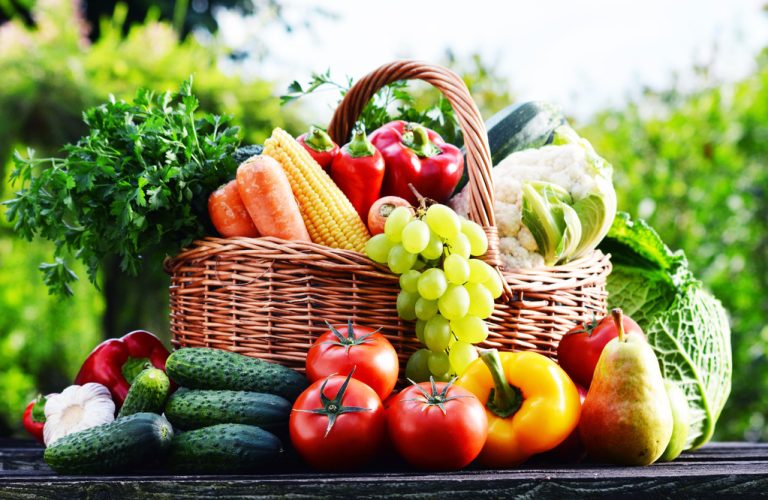A balanced diet is not only important with increasing age. You can find out here which vitamins the body urgently needs from the age of 50 and when food supplements can make sense.

This is how your body changes as you age
Some of the changes in your body as you age are quite obvious on the outside. Gray hair, less elastic skin, a tummy or a slightly less dynamic gait. Other changes are more internal. Muscle and bone mass decrease, tendons are no longer as supple. You may also notice that over time you can no longer see and hear as well and that it is increasingly difficult to remember things. All of these are perfectly normal symptoms of aging.
Of course, that doesn’t sound particularly nice. But even if your physical performance decreases with age, this does not automatically mean that it also reduces your quality of life. Especially since your biological age does not necessarily have to match your actual age. There are a number of things you can do to stay fit as you get older.
50 plus: Your body needs that now
According to the medical journal, every fourth person in old age is undersupplied with vitamin B12. This vitamin is particularly important for cell division, blood formation and nerve formation. Age-related changes in the gastrointestinal tract can make it difficult or even impossible to absorb this vitamin from food. Vitamin B12 is found in animal products such as meat, fish, seafood, eggs and dairy products. Even if this vitamin can be stored in the body, the body is dependent on a regular supply through food.
Basically, B vitamins support your carbohydrate, fat and protein metabolism as well as the metabolism of the brain, muscles and nerves. They are also important for blood formation, your immune system and the fight against inflammation in the body. Therefore, a deficiency has several negative effects on your body and your well-being. Vitamin D is also one of the essential vitamins whose production in the body decreases with age. It is mainly formed under the influence of light. However, because mobility decreases with age and outdoor activities take place less frequently, undersupply can occur. Vitamin D intake in conjunction with calcium is recommended to prevent osteoporosis. Vitamin A is also known as the “eye vitamin” and is important for vision. Yellow and orange fruits and vegetables (e.g. broccoli) are good sources here.
Vitamin C fights the harmful free radicals in the body and helps protect the immune system. Although citrus fruits such as oranges or lemons are always named as the main suppliers, there are some vegetables that outperform them in terms of vitamin C. They also come predominantly from local cultivation, such as broccoli, Brussels sprouts and kale. In addition to vitamins, minerals such as magnesium, sodium, zinc and trace elements of iron, iodine and zinc are indispensable. For example, iron supports the oxygen transport in your body and takes over functions in the formation of hormones and important messenger substances. Iodine is an essential component of the thyroid hormones and promotes cell division and tissue growth. Zinc supports the healing of wounds and is also important for strengthening your immune system.

diet, water, exercise and sleep
With a balanced diet with mostly fresh ingredients, you can provide your body with all the important vitamins and nutrients. If you still drink 2-3 liters of water every day and treat yourself to some exercise every day, then you have already done a lot for your well-being. As a rule, it is therefore not necessary to help with food supplements. You should also give your body enough sleep, which it needs to regenerate.
Dietary supplements can help both people over the age of 50 and people with certain diseases, such as chronic inflammatory bowel disease, to meet the increased need while eating a less balanced diet. However, dietary supplements should not be taken carelessly, as undesirable side effects such as kidney damage can occur. Water-soluble vitamins, such as vitamin C or B, are generally safer in the event of an overdose because they are easily excreted through the kidneys or urine. Nevertheless, too high a dose of vitamin B, for example, can lead to gastrointestinal disorders and dizzy spells. Fat-soluble vitamins such as A, D or E, on the other hand, accumulate in the body. If you take too much into the body via appropriate preparations, nausea, headaches or drowsiness and dizziness can be the result.
So before you want to consume vitamin preparations or dietary supplements, you should first discuss this with your family doctor. A blood count reveals very quickly whether there is a deficiency and if so, what it is. You should also keep in mind that many foods, such as fruit juices, breakfast cereals or certain yoghurts, are already fortified with vitamins.

